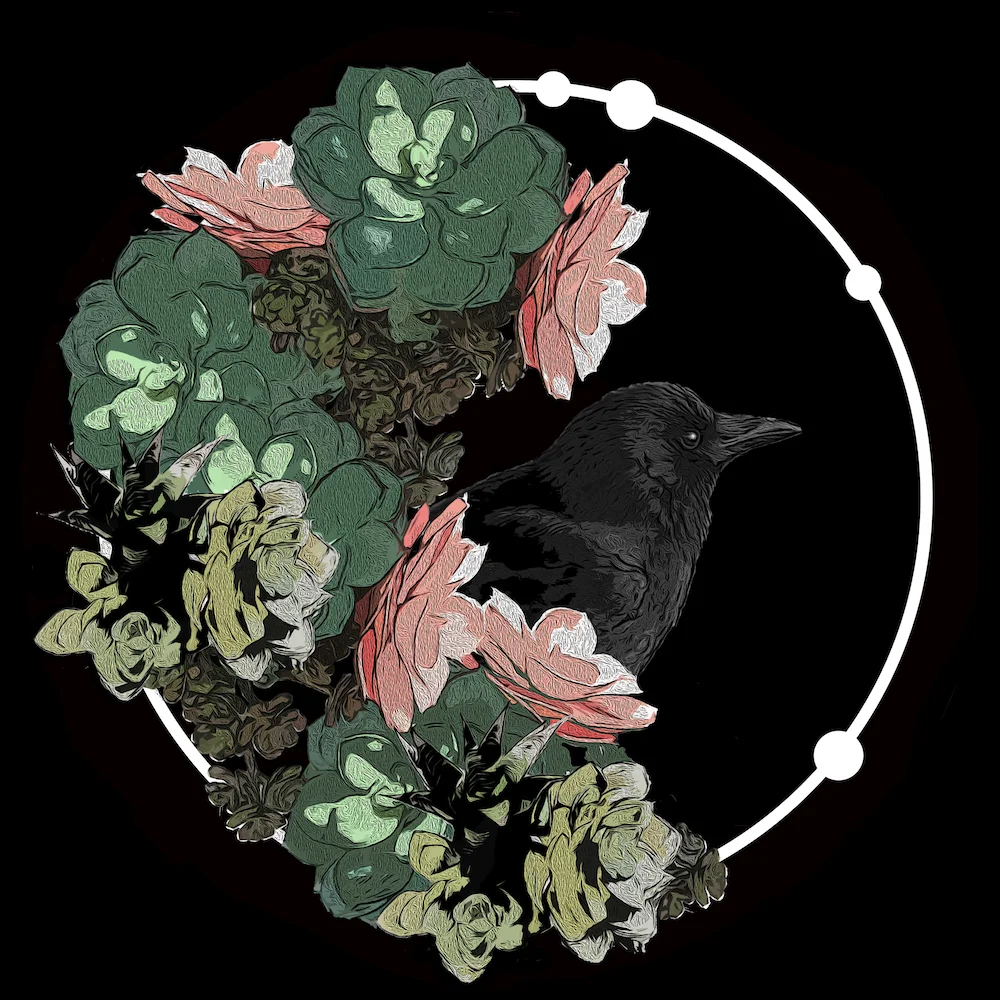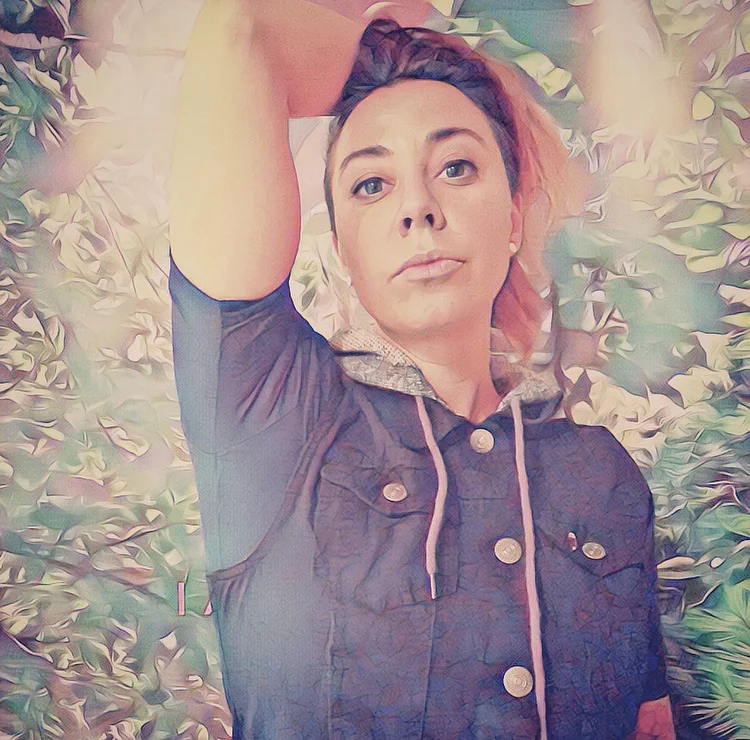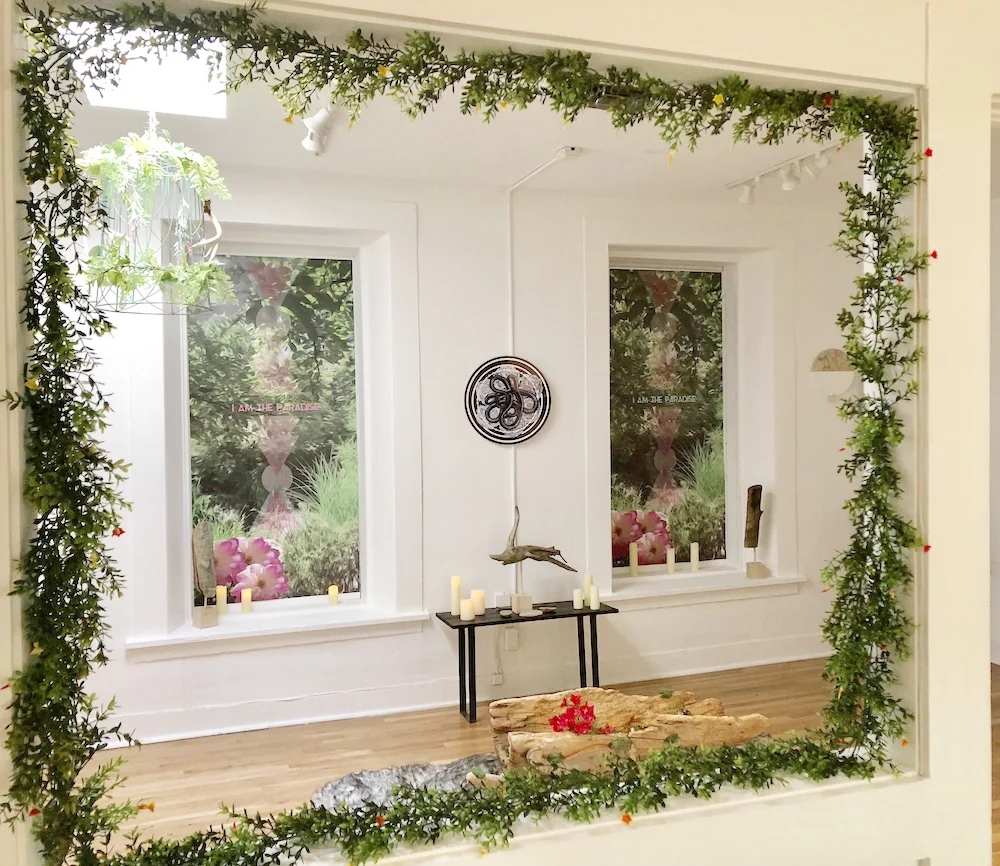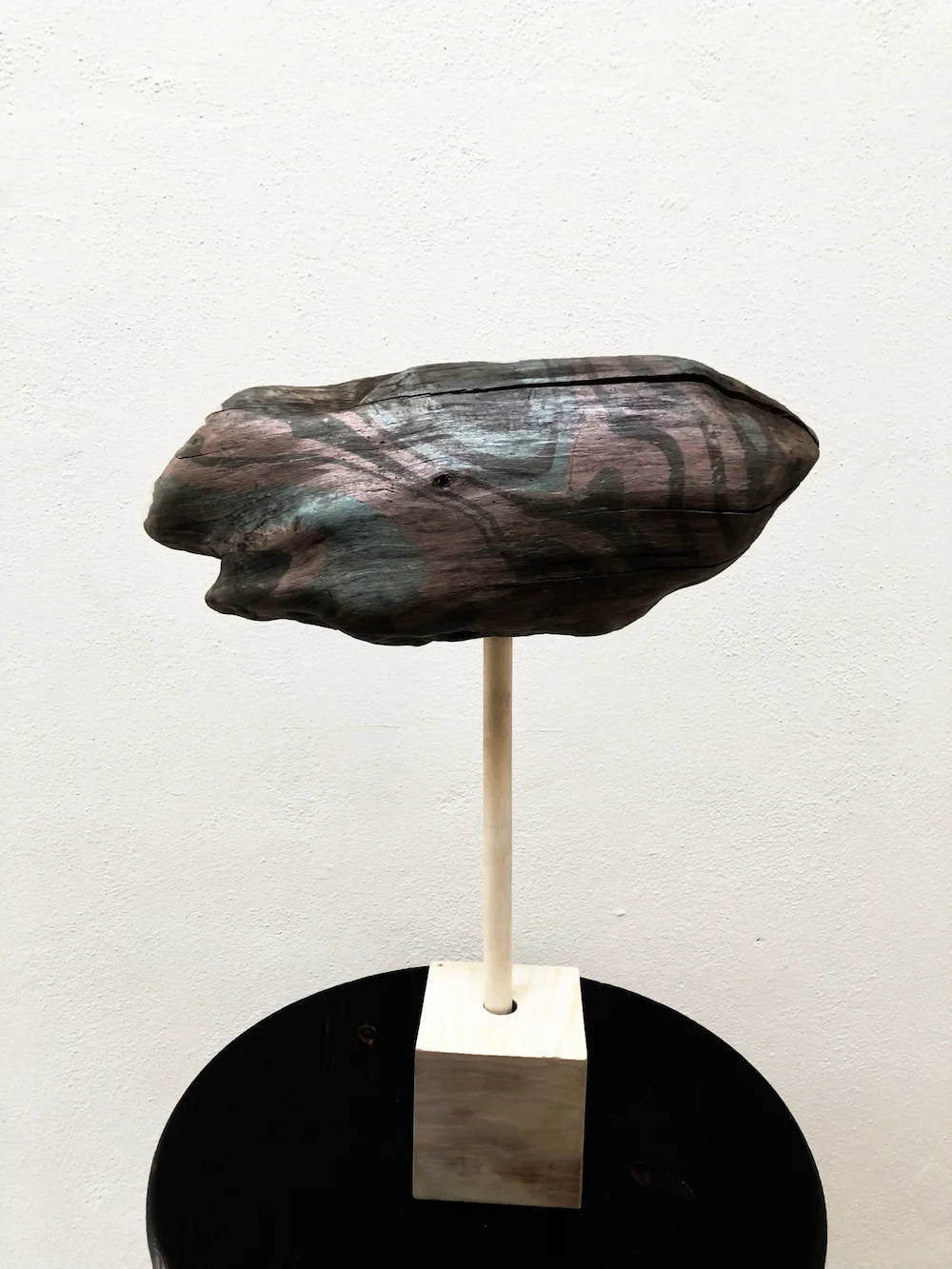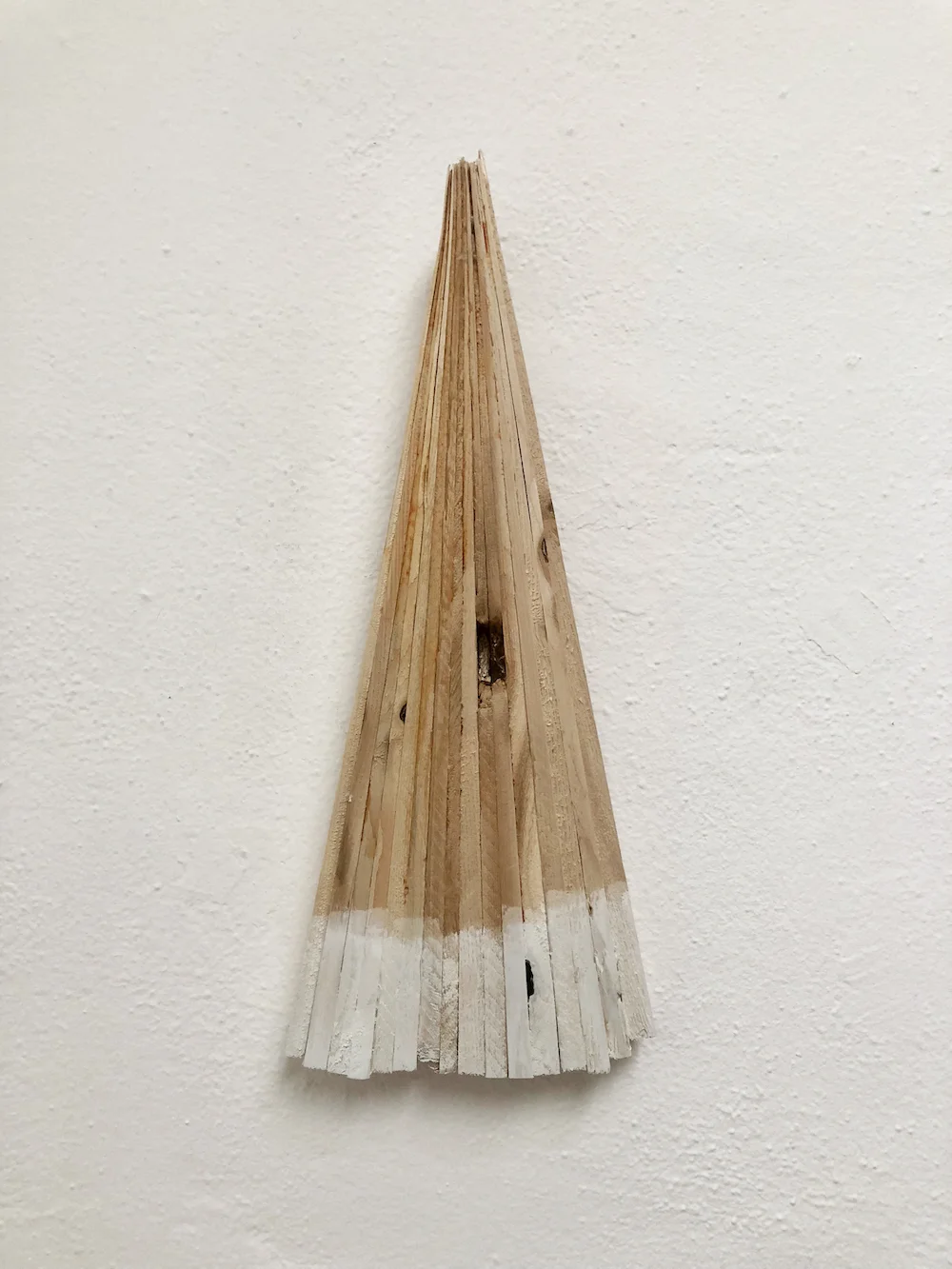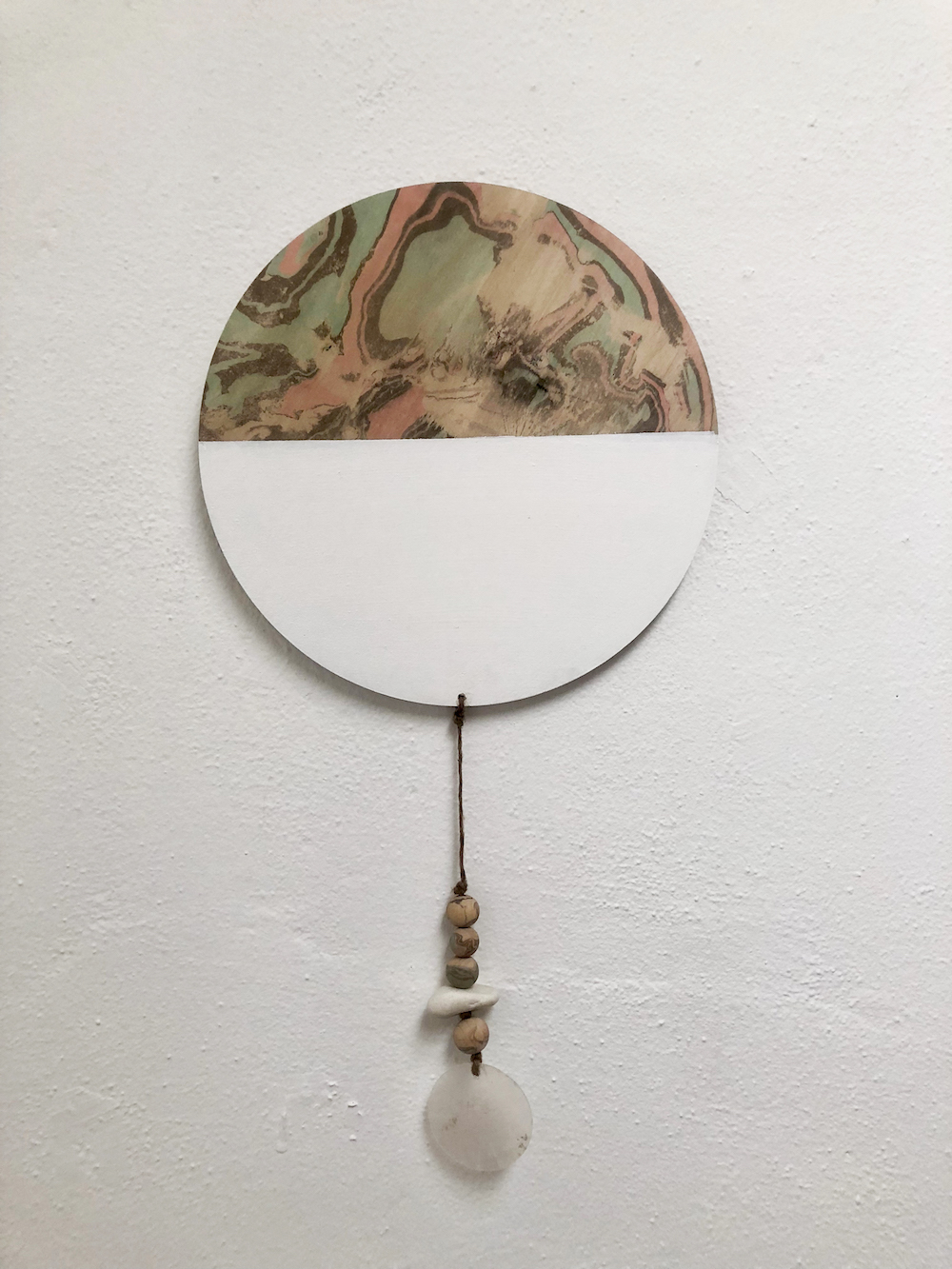Niomi Fawn
I started Curate Santa Fe five years ago because the art shows I wanted to see weren't happening in town. This is before some of the great galleries and DIY spaces like NO LAND were on the scene. It was a different reality, and everything I was seeing was so bland and heteronormative to me that I just couldn't stomach the idea of going to one more art show that I didn't resonate with and that wasn't inclusive.
I decided I was going to start hanging shows and I left Meow Wolf (an art collective in Santa Fe, New Mexico). I got to a place in that space and time where I realized that if I wanted to keep seeing art by people I cared about who were super marginalized in the art community, then I was just going to have to do it myself. I wanted to show people who I was really excited about, those who I felt were doing phenomenal work but were really outside the machine, because I think the art world is very patriarchal and it's very violent. I mean art is awesome. Can it change the world? Yeah. But it's also been used to subjugate and program and commandeer people's free will. So let's get real here: Art isn't just this thing that's just scot-free; it can be a propaganda machine too.
Soft Witch/Sweet Tangles, Neo Pastiche On Aluminum
I knew I wanted to find a way to show artists that... It's not that they aren't good enough to show at other places; it's just that maybe they don't want to play the game, because I don't want to play the game all the time. Maybe they just need someone to come into their studio and talk to them, because writing an artist statement doesn't actually work for them. It wasn't that I was saying, "Fuck you," to Canyon Road, but I was just kind of saying, "We don't actually need you," and that maybe Santa Fe's art for art's sake isn't everything. Maybe it's about revolution too.
“I got to a place in that space and time where I realized that if I wanted to keep seeing art by people I cared about who were super marginalized in the art community, then I was just going to have to do it myself.”
So for four-plus years I have been putting on shows for other artists (about 50 now), but people were also asking me when I was going to show my work again, which was hard for me to take, because I felt like, "No, look at the artists, look at the artists," and they were telling me, "But we want something of yours too." I think it was hard to think, "OK, Ni, it's fine to do your own show too because, remember, you're also an artist." So when Strangers Collective asked me to have a solo show, I was excited and happy to present Wild Home.
Wild Home Exhibition at NO LAND
The whole premise of Wild Home started with this fantasy when my wife, Hannah, was overseas for 14 months. I really felt I was having this deep period of longing for her homecoming. I had keep the homecoming fantasy alive to sort of leverage myself into a space of safety. I thought I knew what her coming home was going to look like, because you mythologize people, especially when they're gone and in danger. In that process of her coming home, we got this home and I started making our home, so it's really interesting to have that occur and to start creating queer domestic space. However, when she arrived, I still felt like there was this homecoming that needed to happen still, and I couldn't figure out what it was. What I realized is that it was about myself, too, and my own homecoming, coming home to myself: turning 40, finding new places in myself, finding sort of this lush, celebratory space and moving out of a sort of trauma space into a safer space. I had to realize, the homecoming I was seeking was homecoming to self acceptance and self-worth, which is its own prize, but I had to learn what that looked like for me. I think a lot of that had to do with being gender queer or non-binary, which is… I feel oftentimes unseen by people, like they really just want to regulate me into this femininity that I'm not comfortable with.
I grew up with a family that is uber-religious, so as a young person I was afraid to come out, because my brothers were all really young and I felt like I would never have access to them. I came out when I was an adult, and I think it's cool that people come out so early now, but there's still a lot of situations where coming out is terrifying or deadly or somebody is going to die. There are still violent systems that are in place. We're living in a society where people can sometimes do that safely, but we're also still living in a culture where it's not safe for everybody.
I think as humans we're so arrogant about thinking that we know what's going on all the time with the world through our own lenses. When people say things to me like, "I can't use the word 'they' as my pronoun." People are like, "It's not proper English." So you can't speak a word in another language? Because people learn other words for things all the time, and language is super important. It just is. Telling someone that you're going to deny their own identity, it's violent. It's a violent way to be. The truth is, they don't need to know all the ins and outs; it's none of their fucking business. It's really none of their business.
“What I realized is that it was about myself, too, and my own homecoming, coming home to myself: turning 40, finding new places in myself, finding sort of this lush, celebratory space and moving out of a sort of trauma space into a safer space.”
It's just like asking someone, "What's your name?" You don't then start calling them by a different name. For so long I was so adamant about doing all this sort of social justice work for trans and nonbinary folx, genderqueer folx, all while feeling totally terrified to claim my own self in that. Those that have been in my life for a long time know all of that about me. I don’t want to say, for example, that I'm a woman, because I don't feel like that. I mean, I feel like that sometimes, but not all the time. It can be really fluid.
There’s a part of me that's cognitive of this homecoming place where I'm like, "I don't give a hoot if you like it or not. I know who I am, and I know what I'm about." And I know that my manners are probably better than the average persons. It's funny: It's like, invite queers over for dinner; they'll have the best manners. It's because we have to learn how to survive so much, and what it's like to constantly feel relegated to second class.
Witch Haus 5, Spells/Burnt Offerings on Cedar
Witch Haus 1, Prayer and Paint in Cedar
This binary reality, it's so ridiculous and so deep in our culture that it's crazy. It's embedded down deep, and not only is it incredibly harmful for women but it's incredibly, incredibly harmful for men. It's incredibly harmful for anyone else who's all over the spectrum, those who are all of those things and none of those things, especially when we get into the intersections more.
I keep thinking and feeling like I don't have any elders in my life, especially queer elders, that I can turn to. So I'm saying to myself, "Alright, kid, you're 40 now. What kind of elder are you going to be when you're 60? Are you going to be the soft place to land? Are you going to be the one who can talk about what it's like to be in queer/ genderqueer marriage?" Because guess what? I don't have a gramma I can call and talk to about queer marriage. I don't really have any older friends that understand non-binary reality. There'll be something that I won't understand too when I'm 60, but I want to be a good elder. So I've got to get my act together now. If I want to be a good older person, I have to start now, and the only way I'm going to get there is to go home. So I just do everything I can to take care of my house, which is my body and my mind and spirit.
I started an Instagram thing called Queer Fitness USA. It's just me lifting, because so many times female-bodied or female-identified, feminine people, or just queers in general, trans and genderqueer people, we're asked things like, "Why are you in the gym?" Athletics does not belong to just cis, white men. Sorry, guys. We also have our own ways that we need to show up and exercise and be ourselves. For some people it's walking or biking, and that's awesome. For me, I need to lift really heavy stuff and drill myself out. I came from being part of a pro/am surf competition world, and I got addicted to the thrill of the challenge. I'm living in the art world where I see so much addiction and so much depression and not a whole lot encouragement to be in a state of self care. We need to decolonize exercise and sports in some very major ways. Every body deserves to feel good, and trust me, I am not saying this through an ableist lens, either.
I think a lot of times that the people that are starting out on a path of wellness sometime feel least welcome in gym-type spaces, and that's super terrible. So I made this page to encourage people — like maybe if you see some other queer who's not a "perfect bodybuilder" lifting heavy shit and maybe that's exciting, that can be encouraging to other people. The thing about lifting is it teaches you how heavy the things are that you can lift up, but it also reminds you to put them down, and that you don't have to carry them all the time. With weightlifting, I go in there and I lift for an hour, and it's like I'm going to do this burden for one hour and maybe it will remind me when I'm outside of here that I don't have to always carry that burden. Because there are so many burdens that we have to carry, that are put on us by society or culture or whatever it is. But hopefully sometime there are things that we pick and choose. Maybe there's some things in our life that we can choose, like choosing to have less self-doubt or deciding we're not going to hang out with a certain person because they're not good for us. That's what weightlifting teaches you: I'm so strong that I can pick this up, but I'm also strong enough that I can put it down.
Moon Child 2, Ink and paint on Board, Seashells hand died beads, Hag stones and drift wood
I think more so than anything, what I'm realizing is — and I think that this such a basic concept — how can we be a well for anyone if we're not our own well? The thing is, especially in my experience of being who I am and being the person that I am — outside of just queerdom, but queerdom included — it's like we're so often shamed by being told we're not enough or we don't deserve to take care of ourselves or we should always put ourselves last. But really how can we be a well for anyone if we're not our own well? And especially feminine-presenting people, we're told to put everyone ahead of yourself. And I think that there's a great thing in service. But there also comes a point where you realize, "My well is empty." That’s OK; we have to remember we do not need to prove anything. Don't expect everyone to understand you, and sometimes it's a compliment when people don't. Take no shit, but also be kind. Everyone's struggling with something. We have to be very clear about who we are with ourselves and understand ourselves before we expect anyone else to understand us. So make sure you're understanding yourself and get real with that and just be kind to yourself in your own mind, because whatever the thoughts you're thinking to yourself, that's your real. That’s the realest thing that you have, how you think about yourself. So if you're not thinking about yourself kindly, then the rest of it doesn't matter. People are going to be as kind to you as they're going to be, but if you don't treat yourself well, forget it. And that goes for any type of work, artworks or whatever.
“We have to be very clear about who we are with ourselves and understand ourselves before we expect anyone else to understand us.”
It's good to challenge yourself, but don't beat yourself up. We have to just love ourselves. The most important thing is for us to love ourselves, because a lot of genderqueer people go through extreme trauma, and it's like our major job is to just love ourselves. It's important to celebrate yourself. I know I don't want to be afraid anymore. I've been afraid way too much, so more than anything, just be proud of yourself, because you're brave. It's brave. It's really brave. I see it, and I'm inspired by it.
Wild Home is about celebrating a possible future when the world isn't so binary, where we stop subjecting the planet to our ideas of what it is and instead protect and steward it, care for it, realize it is our only home and we share it with so many precious species. It is about celebrating a future where we are brave enough to do self compassion and encourage holistic living so we can thrive on this Earth. It starts in ourselves. I am a Wild Home, and I deserve to honor myself as we all do. When we celebrate true understanding of ourselves, loving others and loving our planet just comes naturally.
Follow her on IG: @plumeriaproductions; and @curatesantafe and her website: www.niomifawn.com and www.curatesantafe.com
Niomi is an award-winning Queer Feminist Renegade Independent Curator. She pushes the boundaries of the art world's hierarchical structures by curating exhibitions in alternative spaces and by using spaces alternatively, sometimes moving outside of the gallery walls and into the actual streets. In 2014, she founded CURATE, a (Curatorial Venture), and has has curated over 25 public and private art shows. She has been the sole curator since Fall 2014 at Santa Fe's Iconik Coffee Roasters, bringing radical art into public space. She won the City of Santa Fe City IGNITE Grant 2016, curating a permanent art installation on the Santa Fe Plaza. Her work as an artist includes four years as an active member of Santa Fe's famous art collective, Meow Wolf.
WILD HOME at NO LAND
54 1/2 E. San Francisco St. #7
Santa Fe, NM
August 4 - September 29, 2018
Closing Reception: Saturday, 9/29, 6-9 pm
Narrative written by Tricia English in collaboration with Niomi Fawn

